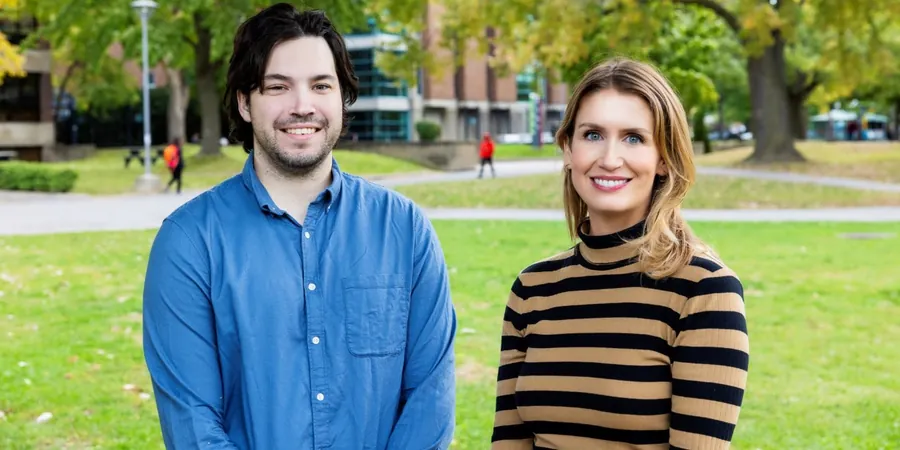
Shocking Study Reveals One-Third of Childhood Cancer Survivors Struggle with Overwhelming Fear of Recurrence!
2024-10-15
Author: Liam
Groundbreaking Study Unveiled
A groundbreaking study by researchers at Concordia University has unveiled that an alarming one-third of adult childhood cancer survivors grapple with significant fear that their cancer may return, impacting their daily lives profoundly. Published in JAMA Network Open Oncology, this research highlights a critical aspect of survivorship that has been overlooked for far too long.
Study Analysis
In a detailed analysis involving 229 survivors treated between 1970 and 1999, it was revealed that 16.6% reported clinically significant levels of fear of cancer recurrence (FCR), while an additional 15.7% experienced high levels of fear. These statistics, though troubling, align with those seen among survivors of adult-onset cancers, underlining a pervasive yet unaddressed issue in post-cancer care.
Research Insights
Lead author Alex Pizzo, a PhD student in Clinical Psychology at Concordia's Behavioral Health Innovations Lab, emphasized a significant gap in the existing scientific literature. “We have not seen strong, validated measures of FCR in studies focusing on childhood cancer survivors, making it challenging to determine accurate prevalence rates,” he explained.
Acknowledging the Distress
Dr. Nicole Alberts, the paper's corresponding author, acknowledged that while some anxiety around FCR is normal, the study underscores the distress it can cause in various aspects of life, including work, relationships, and education. “This kind of fear can be distressing and is not something we should overlook,” she stated.
Long-Term Fears
What’s particularly concerning is that fears can linger for decades after treatment. The study utilized a comprehensive series of questionnaires through a dedicated app, prompting survivors to assess their levels of FCR, anxiety, depressive symptoms, self-perceived health, chronic pain, and more. Surprisingly, it was found that unemployment and lower education levels were linked to heightened fears of recurrence.
Factors Influencing Anxiety
Moreover, survivors who had undergone pelvic radiation, limb amputations, or had neurological conditions reported the highest anxiety levels regarding cancer recurrence. Surprisingly, those who rated their health poorly were more likely to experience significant FCR.
Mental Health Connections
The link between mental health and fear of recurrence remains unclear; it could be a case of FCR contributing to anxiety and depression or vice versa. "More research is needed to clarify those connections," Pizzo noted.
Advocacy for Routine Screening
The researchers advocate for routine screening during medical consultations to identify these survivors at risk. A few simple questions could make a world of difference in providing timely support. “Implementing these screenings could pave the way for more targeted psychological care,” Alberts added.
Potential Therapeutic Interventions
Therapeutic interventions like cognitive behavioral therapy (CBT) paired with mindfulness techniques may offer relief for these individuals, fostering better mental health outcomes. “Understanding the specific anxieties of this unique group of survivors is crucial for developing effective treatment plans,” Pizzo concluded.
Conclusion
This important study supports a call for enhanced support for adult survivors of childhood cancer, reminding us of the enduring struggles they face long after the initial battle with cancer has been fought. It urges healthcare providers to prioritize mental health care for this vulnerable population, ensuring they receive comprehensive support for every facet of their well-being.
Stay Tuned
Stay tuned as we continue to track developments in this vital area of healthcare! Will our childhood cancer heroes receive the support they desperately need? The conversation has only just begun!









 Brasil (PT)
Brasil (PT)
 Canada (EN)
Canada (EN)
 Chile (ES)
Chile (ES)
 España (ES)
España (ES)
 France (FR)
France (FR)
 Hong Kong (EN)
Hong Kong (EN)
 Italia (IT)
Italia (IT)
 日本 (JA)
日本 (JA)
 Magyarország (HU)
Magyarország (HU)
 Norge (NO)
Norge (NO)
 Polska (PL)
Polska (PL)
 Schweiz (DE)
Schweiz (DE)
 Singapore (EN)
Singapore (EN)
 Sverige (SV)
Sverige (SV)
 Suomi (FI)
Suomi (FI)
 Türkiye (TR)
Türkiye (TR)